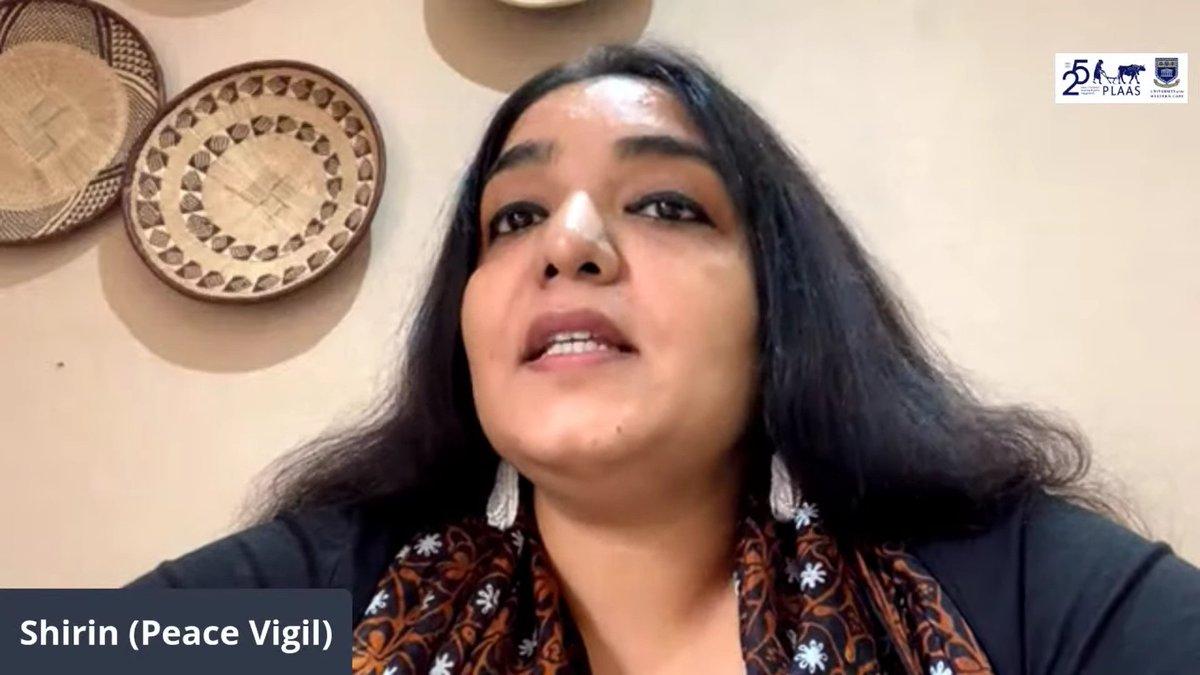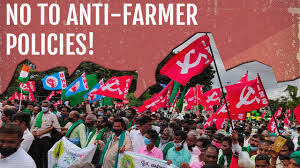Most Indian farmers have less than 2 hectares! And depend on state-guaranteed prices for wheat & rice. This has been the foundation for smallholder agriculture for decades. It's this system which is under threat from new agricultural laws.
Siddharth Joshi, PhD #FarmersProtests
Restrictions on buying farmland by non-farmers and companies in Karnataka have been removed. These were meant to protect farming communities from dispossession by corporate interests. The squeeze on farmers means a crisis for rural people, says Joshi
#FarmersProtests
The 3 Indian farm laws that are being disputed are about removing regulation of farm product markets; removal of guaranteed farm prices; promotion of contract farming which would make farmers 'price-takers' from agribusiness.
#FarmersProtests
Dr. Vikram Singh (Joint Secretary, All India Agricultural Workers Union) says there are almost 300,000 protesters are on the streets, have been on the road for the past two and a half months. This is unprecedented, a mass movement that extends beyond a peasant movement.
Farm laws need to be seen in context: a wider trend of merging of state and corporate power, backed by dictatorial decree. This is Mussolini's definition of fascism, a corporatism fusing state with corporate interests.
- Shirin from Peace Vigil #FarmersProtests
Indian farmers are fighting against the new laws that would forbid them from going to court to contest the behaviour of agribusinesses. The state is preventing people from disputing corporate power, and centralising power among state bureaucrats, says Shirin #FarmersProtests .
Why is the Indian state attacking its own farmers in this way? Shirin says the answer is clear: corporates are running the state.
#FarmersProtests webinar
@PLAASuwc
India's #FarmersProtests should alert everyone, everywhere, to the ways states are using the #COVID19 pandemic to push through measures to open up economies to corporate control. This is an international issue, not an Indian issue
- Shirin
#FarmersProtests
The Indian farm laws are a long-term outcome of economic liberalisation in the 1990s and the growth of an ultra-rich elite with powerful lobbying power taking control of the state via the ruling BJP.
#FarmersProtests
The government has dug trenches around Delhi to prevent movement of people and goods into the city, sowing the seeds of division among urban consumers and protesting farmers. But will this work? There is also solidarity from urban middle-class with the #FarmersProtests
'Hindutva' ideology of narrow chauvinism is strongly embedded in neoliberal reforms in favour of corporate power. There is huge funding to foment Hindu nationalism, with 80% of election funding going to ruling BJP, says Dr Joshi.
#FarmersProtests
The state's crackdown on Indian #FarmersProtests has been justified as depicting them as not 'real farmers' but disgruntled middlemen. But with up to a million people on the first mass march, and up to 300,000 people protesting for months, this doesn't hold up, says Dr Singh
Over 250,000 tractors came to Delhi on 26 January. This is a mass and unprecedented mobilisation, says Shirin
#FarmersProtests
India's opening up of agriculture to big business is already driving up food prices, which is one factor bringing urban consumers into alliance with #FarmersProtests
Many among India's (huge) urban middle-class have farming roots, or rural family connections, and identify with the struggles of farmers against the new farm laws. This is part of the power of the #FarmersProtests
Land reforms have been eased, to allow big companies to speculate on farmland, leading to quadrupling of land prices in Karnataka, for instance, says Dr Joshi
#FarmersProtests
Identity politics is the primary weapon of the fascist movement which aims to divide populations by religion, caste, race, says Shirin. The counter-movement against #Fascism and corporate capture of states has to forge solidarity transcending identity divisions.
#FarmersProtests
That's a wrap from this PLAAS webinar and 'aluta continua and bye-bye' from chair
@boamonjane Boaventura Monjane, postdoc at PLAAS.















